Although car accidents involving sports utility vehicles (SUVs) and trucks are not normally different from any other accidents as far as proving liability against the driver who caused the wreck when an SUV or a truck rolls over in an automobile wreck and the roof crushes, there could be an additional liability against the manufacturer of the vehicle. Although roof crushes are not limited to trucks and SUVs, these vehicles are more susceptible to rolling over as a result of an automobile collision.
A roof crush occurs when a vehicle rolls over and the roof collapses into the cabin of the vehicle, often hitting the driver and passenger in the head. Such an impact is often catastrophic and causes big injuries such as brain injuries, spinal cord injuries, and even death; with such injuries, a run-of-the-mill automobile insurance policy is unlikely to be sufficient to fully compensate the victim. Thus, looking into the possibility of a manufacturing defect would expose the car manufacturer to liability and possibly provide the compensation needed to pay for medical bills and life care associated with such devastating injuries.
The National Highway Traffic Safety Administration (NHTSA) is responsible for addressing deaths and serious injuries associated with vehicle roof crushes and implementing and enforcing standards for vehicle roof crush resistance. The Federal Motor Vehicle Safety Standard Number 216 specifically addresses roof crush resistance for vehicles and outlines weight resistance requirements for vehicles. That is, the standards determine how much resistance a car roof should have to impact and weight so that the roof structure may withstand a minimum amount of force without moving into the car cabin.
In theory, vehicle manufacturers should build cars to sustain the required amount of force under the federal standard. For example, the steel side beams that are used for door frames should be a certain height in order to prevent a roof crush but could be designed defectively and cause a vehicle roof to crush. Similarly, the number of beams and pillars that line the top of the roof could impact whether the roof can sustain a significant amount of force. Roof crushes also increase the chance that the occupants of the car will be ejected, as they often force the doors to open.
When looking at a truck or an SUV, the issue of whether the rollover could have been prevented by designing the vehicle differently is also important. For example, the engine can be placed in a specific position to provide a solid center of gravity for the car and prevent rollover. Additionally, when there is a roll-over accident, attorneys often look at the possibility of other design failures, such as seat belt failures, car seat failures, and inertia buckle release.
When car manufacturers fail to design the roofs or the car appropriately to prevent rollovers and roof crushes, they can be subject to liability under products liability law in Georgia. Some popular vehicles that have been the subject of products liability litigation include Ford Explorers, Ford F-150s, Jeep Cherokees, and Chevrolet Suburbans.
Such cases are usually expensive and difficult to prove and require extensive expert evaluation by engineers, accident re-constructionists, medical experts, and other professionals. Many factors, such as whether the driver was acting reasonably, whether the driver/passengers were wearing seat belts, or whether any other factors could have caused the injuries all to come into play when evaluating roof crush and rollover cases.
In sum, SUV and truck rollover accidents require a different level of expertise than your everyday car accident. Thus, it is imperative that if you or a family member has been a victim of such an incident, you call a qualified attorney to evaluate your case. The attorneys at The Davis Injury Firm provide consultations and will guide you appropriately. Call us at (404) 647-0722 to schedule a consultation with an attorney.

